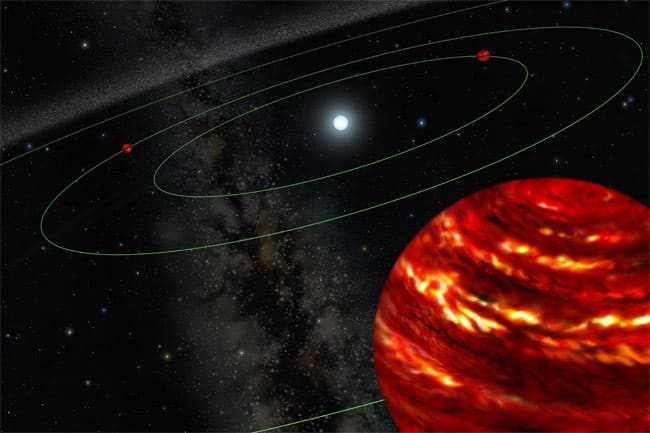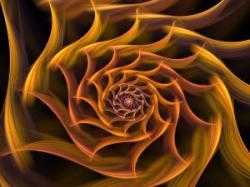Fragments of the big meteorite that lit up the Canadian skies across the provinces of Alberta and Saskatchewan last week have been found, according to a report in CBC online. University of Calgary scientists said they located several meteorite fragments late Thursday afternoon, and they were planning to take reporters to the site Friday. Planetary …
Tag archieven: ruimtevaart
Eerste foto’s van planeten rond andere sterren
Astronomen maakten met behulp van de Hubble Space Telescope de allereerste directe foto’s van planeten buiten ons eigen zonnestelsel, “including a visible-light snapshot of a single-planet system and an infrared picture of a multiple-planet system.” This 2006 Hubble Space Telescope optical image shows the belt of dust and debris (bright oval) surrounding the star Fomalhaut …
Lees verder “Eerste foto’s van planeten rond andere sterren”
Galaxy map hints at fractal universe
Is the matter in the universe arranged in a fractal pattern? A new study of nearly a million galaxies suggests it is — though there are no well-accepted theories to explain why that would be so. Nearly all physicists agree that on relatively small scales the distribution is fractal-like: hundreds of billions of stars group …
India lanceert eigen sonde naar de Maan
India lanceert vandaag zijn eerste maansatelliet, de Chandrayaan-1, een sonde van liefst 1,4 ton. Dit is een grote stap vooruit voor het ruimteprogramma van het in Bangalore gevestigde Indian Space Research Organisation (ISRO), en zal de Aziatische ruimterace nog verder aanvuren.
Hawking: If we survive the next 200 years, we should be OK
Stephen Hawking: “If we survive the next 200 years, we should be OK. It will be difficult enough to avoid disaster on planet Earth in the next 100 years, let alone next thousand, or million. The human race shouldn’t have all its eggs in one basket, or on one planet. Let’s hope we can avoid …
Lees verder “Hawking: If we survive the next 200 years, we should be OK”


